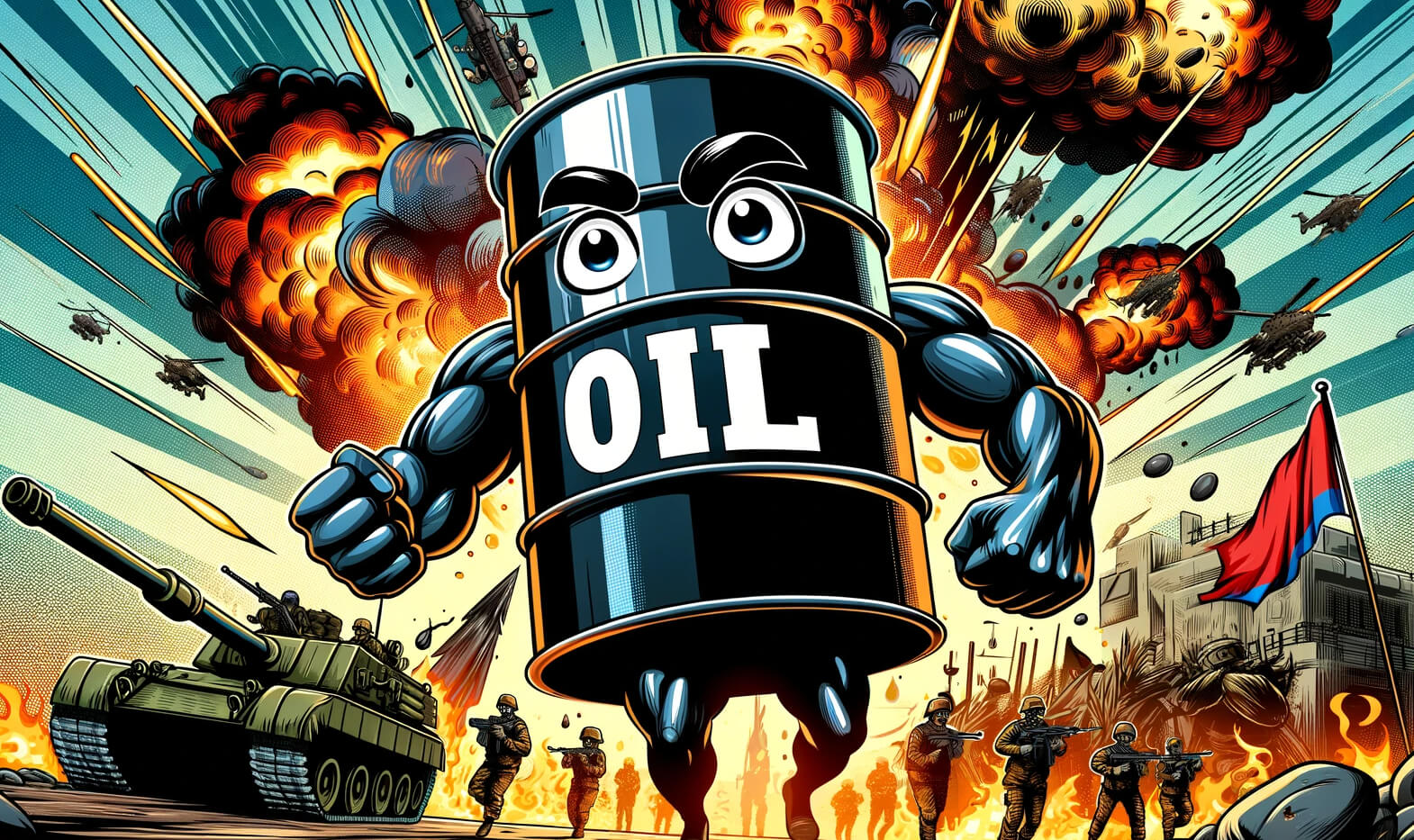
Oil Market - The Israel-Hamas Conflict and Its Global Impact
From sustained ceasefires to potential full-scale wars, uncover how escalating Middle Eastern tensions could reshape global oil markets and economic stability | That's TradingNEWS
Geopolitical Overview: The Current Israel-Hamas Conflict
The ongoing conflict between Israel and Hamas has been relatively contained with limited repercussions on the global economic landscape so far. However, the potential for this regional conflict to escalate into a more direct confrontation between Israel and Iran poses a significant risk, with possible severe implications for global oil prices and economic stability.
Scenario Analysis: From Ceasefire to Full-scale War
Sustained Ceasefire: In the best-case scenario, a sustained ceasefire could stabilize the current geopolitical situation, leading to minimal disruption in the oil markets. Historical data suggests that oil prices remain stable or increase slightly under such circumstances, as market confidence improves and the risk premium on oil prices diminishes.
Confined Conflict: Limited military engagements, such as targeted airstrikes and rocket attacks, are likely to have a similarly muted impact on the global markets as seen in past confined skirmishes. The markets have previously shown resilience, with only minor fluctuations in oil prices.
Proxy War: A scenario where Israel and Iran engage through proxies across multiple fronts, including Lebanon and Syria, could lead to significant disruptions. Such a conflict might increase oil prices by approximately $10 per barrel, considering the strategic importance of neighboring regions in oil production and transportation.
Direct Conflict: The most severe scenario involves a direct military confrontation between Israel and Iran. This could severely disrupt oil production in the Persian Gulf, where a significant portion of the world’s oil is produced. If the Strait of Hormuz were to be blocked, it could eliminate the relevance of spare production capacities in Saudi Arabia, UAE, and Kuwait, potentially driving oil prices up to $150 a barrel and reducing global output by around $1 trillion.
Economic Implications
Global Economy: Each escalation scenario varies in its potential impact on the global economy, with the most severe scenario possibly causing a global recession, reducing global GDP by about $1 trillion, and significantly hindering economic growth down to 1.7%. This would represent the weakest global growth since the economic crises of 1982.
Inflation and Monetary Policy: Heightened conflicts in key oil-producing regions traditionally lead to spikes in oil prices, thereby driving inflation higher. This would complicate monetary policy globally, potentially forcing central banks like the Federal Reserve to adjust their strategies, impacting global investment climates and economic recovery efforts.
Market Strategy and Recommendations
Investor Strategy: Investors should closely monitor the evolving geopolitical landscape and adjust their portfolios accordingly. Commodities, particularly oil and natural gas, may offer hedging opportunities against inflation.
Corporate Strategy: Companies in the energy sector should prepare for volatile price movements by enhancing their operational flexibility and considering strategic stockpiles.
Policy Recommendations: Policymakers should focus on diversifying energy sources and enhancing strategic petroleum reserves to mitigate the impact of potential supply disruptions.
Investment Considerations Amidst Israel-Hamas Conflict: A Summary of Bullish Factors
As the geopolitical landscape fluctuates due to the ongoing tensions between Israel and Hamas, with a possible escalation involving Iran, several bullish factors emerge that could influence investment strategies, particularly in the energy sector. The potential for direct conflict could disrupt critical oil supply routes such as the Strait of Hormuz, where a significant portion of the world's oil passes. This scenario could catapult oil prices to as high as $150 per barrel, presenting a substantial opportunity for investors in the energy sector.
The impact of a proxy war, while less severe, could still increase oil prices by about $10 per barrel. This rise reflects the strategic significance of the involved regions, which are crucial to global oil supply chains. Such increases would likely enhance the valuations of companies within the energy sector, possibly leading to higher dividend yields due to increased profit margins, offering an attractive return for shareholders.
Investing in commodities like oil and natural gas during these times could also serve as an effective hedge against inflation. As oil prices potentially rise due to the conflict, commodities may provide a buffer against the erosion of purchasing power that often accompanies inflationary periods.
Moreover, geopolitical risks typically introduce a premium on oil prices, adding to market volatility. This environment could benefit investors in energy stocks or related ETFs that stand to gain from heightened oil prices. Additionally, disruptions in traditional supply lines might open up opportunities for alternative markets, where countries capable of ramping up production could benefit from increased demand and pricing power.














